I’m kind of obsessed with Sylvia Beach.
She was the owner of the iconic Paris bookstore Shakespeare & Company, which sold English language books to ex-pats and Parisians alike and became the literary hot spot of its time—the 1920s, ’30s and early ’40s—until the Nazis shut it down. Shakespeare & Company was the gathering place of writers and artists including Ernest Hemingway, T.S. Eliot, Archibald MacLeish, Ezra Pound, and a very young Elizabeth Bishop, to name just a few big names, as well as the man whose career was most closely tied to Beach—James Joyce. Sylvia Beach was one of the first to recognize his genius, and she sacrificed a great deal to publish his master work, Ulysses.
I can’t quite explain why I find Sylvia such a compelling figure. (Normally, I would use her last name here, but I feel such a weird affinity with her that it seems wrong.) I think I see something of myself in her and imagine what it might have been like to live her life, though in some ways we are very different. The ways in which we are similar: She was a PK—a preacher’s kid—who grew up a reader surrounded by books. A sense of adventure propelled her (to Europe in 1919). And how I would have loved to have opened a Paris bookstore and become the center of the expat literary scene!
I’ve read both Beach’s own autobiography, titled simply Shakespeare & Company, and the only biography written of her so far, Sylvia Beach and the Lost Generation: A History of Literary Paris in the Twenties & Thirties, by Noel Riley Fitch. The latter was published in 1983 and still adheres to the pre-New Journalism style of biography. It’s a somewhat dull 414-page chronological accounting of the facts—interesting for a Beach acolyte, but probably not to anyone else.
I read the autobiography first. It’s less than half as long as the biography, with a breezier tone, irreverent and colorful. I loved it. But it left, between the lines, many unanswered questions—primarily, what was her relationship with fellow bookseller Adrienne Monnier (they were obviously lovers, but Beach is very tight-lipped on the topic), and what happened during the six months after the Nazis sent Sylvia to a concentration camp? Of the latter, she writes only a scrap of what could be a fascinating story: After a Nazi officer came in and announced that they would be confiscating all of her books, her friends helped her dismantle the store literally in one afternoon.
Within two hours, not a single thing was to be seen in the shop, and a house painter had painted out the name, Shakespeare and Company, on the front of 12 rue de l’Odeon. The date was 1941. Did the Germans come to confiscate Shakespeare and Company’s goods? If so, they never found the shop.
Eventually, they did come to fetch the proprietor of Shakespeare and Company.
After six months in an internment camp, I was back in Paris, but with a paper stating that I could be taken again by the German military authorities at any time they saw fit…
That’s it! Where’s the rest of the story? Unfortunately, Fitch’s account of the German camp was quite thin as well. And, it being 1983, he barely touched the lesbian love story either. After I finished this not-entirely-satisfying biography, I actually wrote an email to the Pulitzer Prize-winning biographer Debby Applegate, who lives here in New Haven and who I had recently interviewed, and begged her to write her next book about Sylvia Beach because I knew she was looking for her next subject. No word on that request.
Anyway. I was thinking about Sylvia this week because while we were in New York City, we stopped in at the Upper West Side location of the Shakespeare & Co. bookstore named for Beach’s, which was founded in 1983, coincidentally the same year Fitch’s book was published. I bought two books: Karen Russell’s new novel Antidote to read for my hardcover book club, and a paperback copy of Daniel Mason’s North Woods because several of you have given it such high praise. My husband picked up Sally Rooney’s Normal People—again, thanks to your recommendations.
New York’s Shakespeare & Co. currently has three locations, but we were upset to see a sign taped to the front door announcing the imminent closure of the other two. I also noted that, as much as we love bookstore cafés, a good chunk of the Upper West Side shop is occupied by a café, which is probably how they’re making a go of it at all.
There’s also an unrelated Shakespeare and Company bookstore in Paris, another homage to Beach. This one was opened just a decade after the original closed by another American, who carried on the legacy. Their website tells the story:
The bookshop was founded by American George Whitman at 37 rue de la Bûcherie, Kilometer Zero, the point at which all French roads begin. Constructed in the early 17th century, the building was originally a monastery, La Maison du Mustier. George liked to pretend he was the sole surviving monk, saying, “In the Middle Ages, each monastery had a frère lampier, a monk whose duty was to light the lamps at nightfall. I’m the frère lampier here now. It’s the modest role I play.”
When the store first opened, it was called Le Mistral. George changed it to the present name in April 1964—on the four-hundredth anniversary of William Shakespeare’s birth—in honor of a bookseller he admired, Sylvia Beach, who’d founded the original Shakespeare and Company in 1919. Her store at 12 rue de l’Odéon was a gathering place for the great expat writers of the time—Joyce, Hemingway, Stein, Fitzgerald, Eliot, Pound—as well as for leading French writers.
Through his bookstore, George Whitman endeavored to carry on the spirit of Beach’s shop, and it quickly became a center for expat literary life in Paris. Allen Ginsberg, William Burroughs, Anaïs Nin, Richard Wright, William Styron, Julio Cortázar, Henry Miller, William Saroyan, Lawrence Durrell, James Jones, and James Baldwin were among early visitors to the shop…
George Whitman’s daughter Sylvia—yes, she was named for Sylvia Beach—runs the bookstore today. Sylvia Beach visited the bookstore herself in the 1950s; she died in Paris in 1962.
I visited the Paris store in my early 20s, before I knew anything about Sylvia Beach, and I hope to visit it again someday. I would love to hear if any of you have been there! And if you happen to know anyone who writes biographies for a living, please steer them toward Sylvia Beach, whose full story has yet to be told.

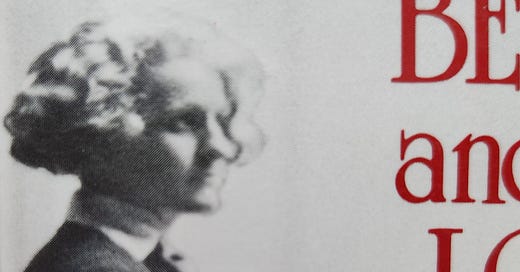



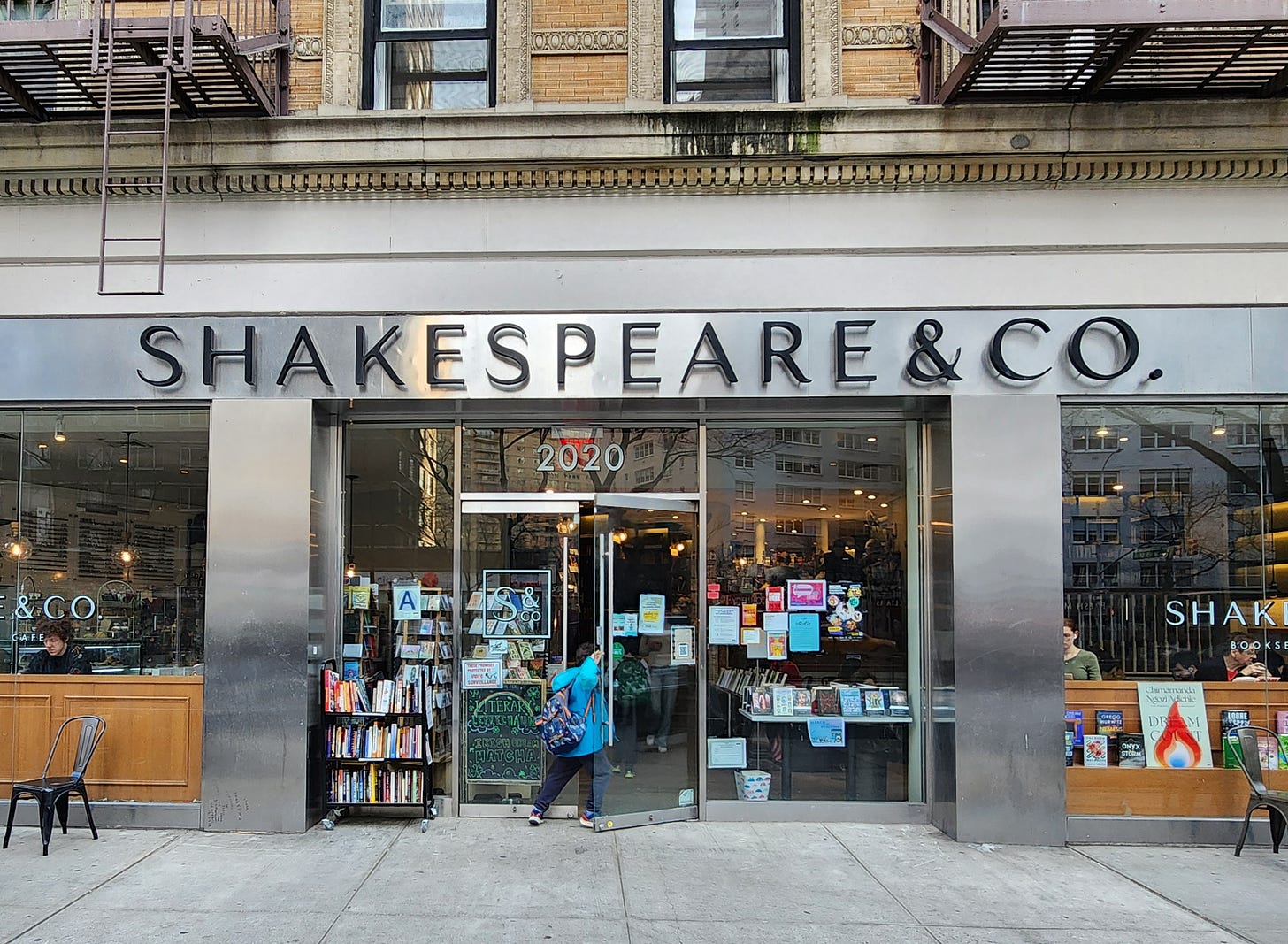
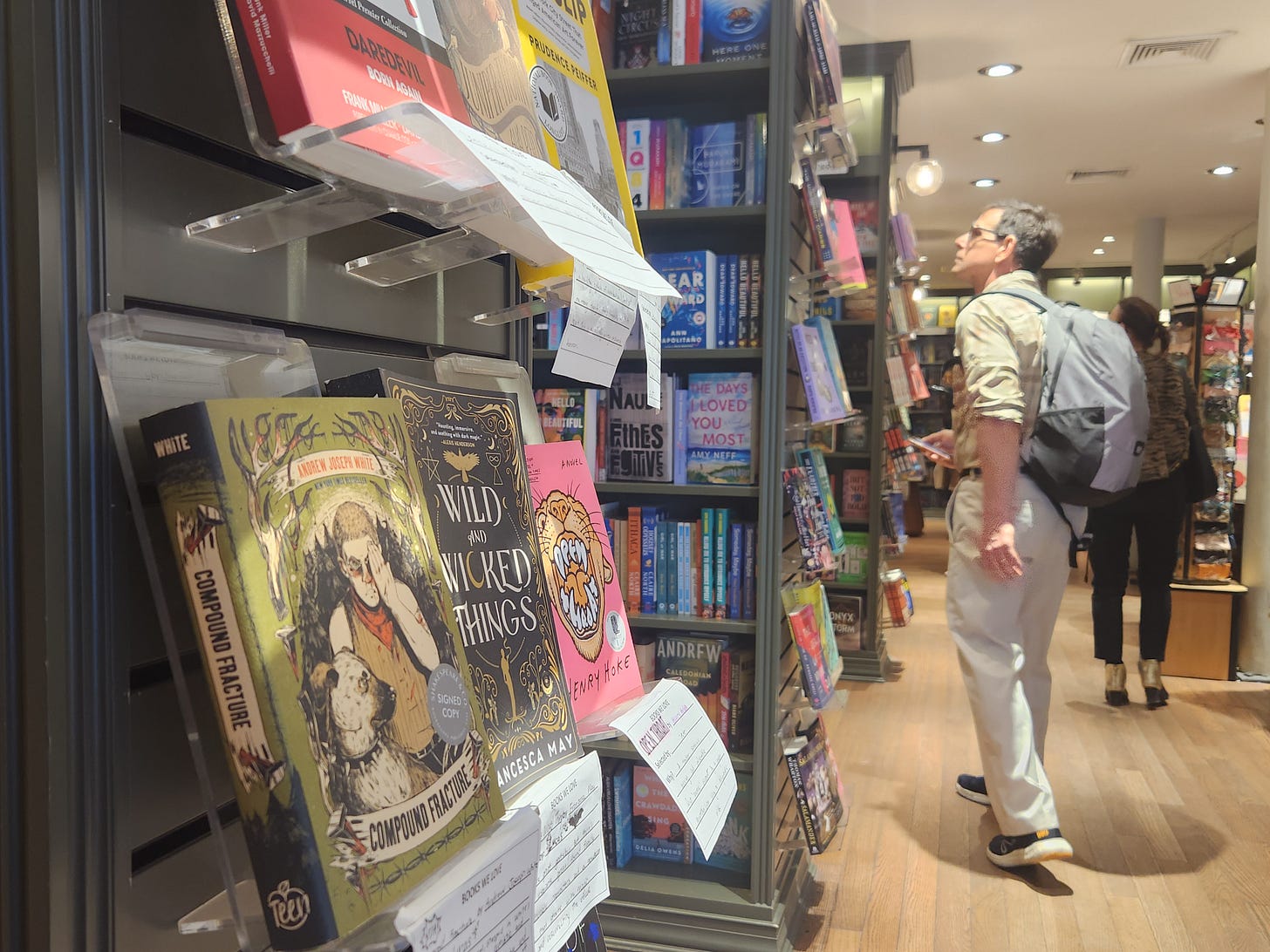
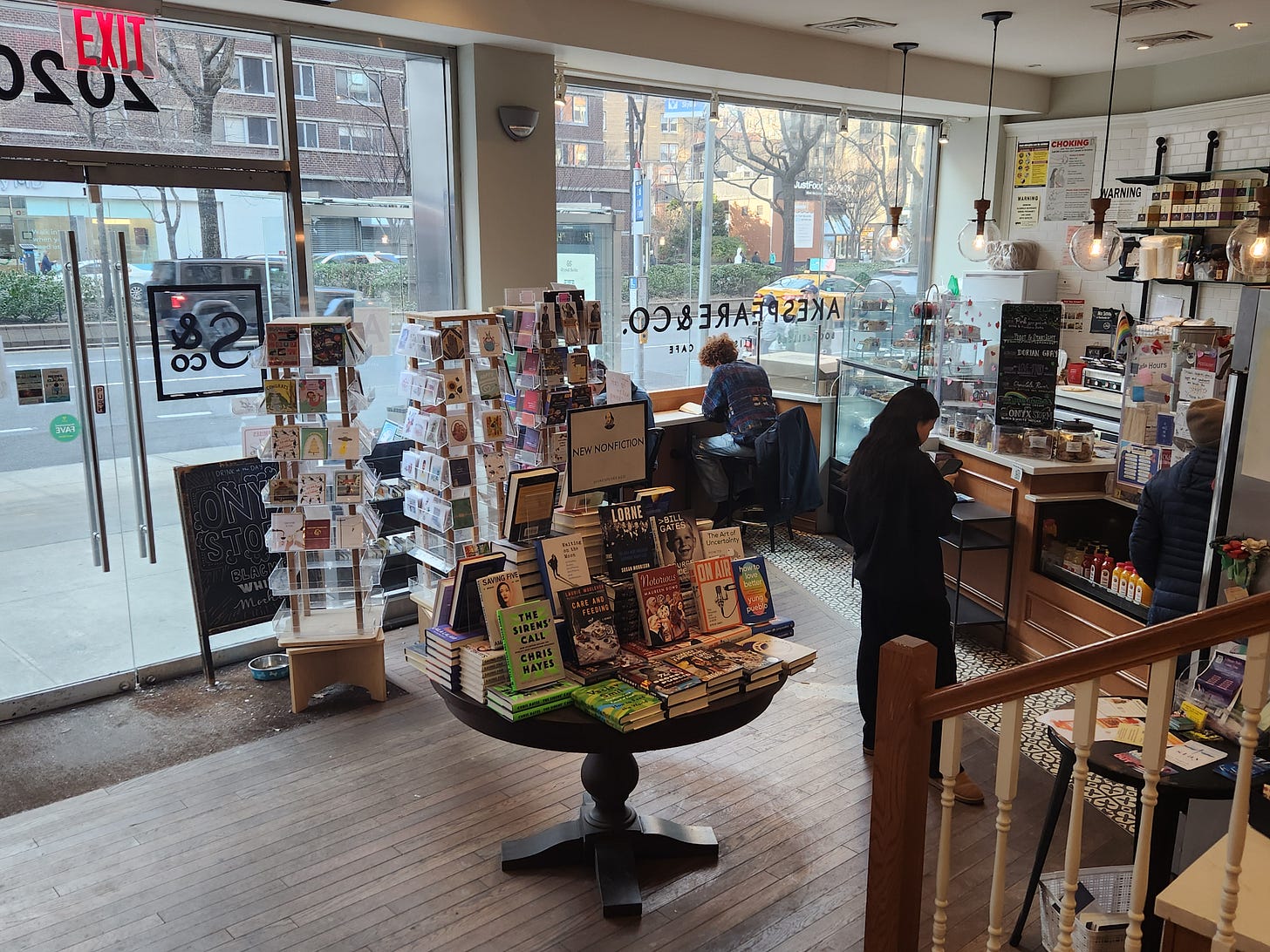
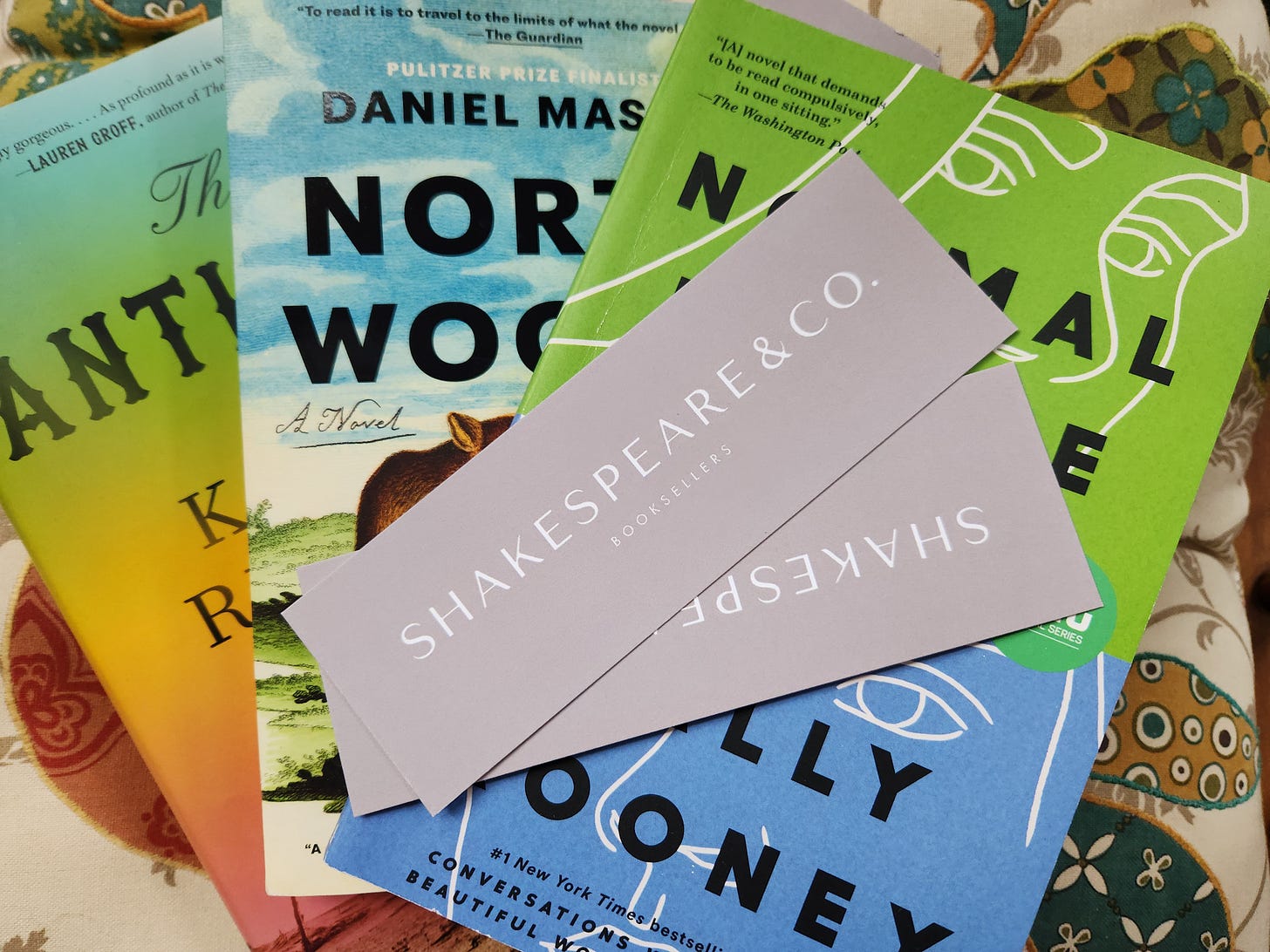
Like you, I visited Shakespeare and Co. at Kilometer Zero in Paris and fell in love with the shop before I learned about and then fell in love with Sylvia Beach. We discovered the shop after a morning wandering the Latin Quarter where people were perpetually wandering by with namesake canvas bags sung over their shoulders. I googled the shop and off we set, standing in a winter drizzle for 45 minutes before our turn to cross the threshold and be changed forever, by the shop and its original owner.
What a great post! I loved learning about Sylvia Beach. I've always been fascinated by that group of writers including Gertrude Stein who populated Paris in the 1920s. This really adds to my understanding.